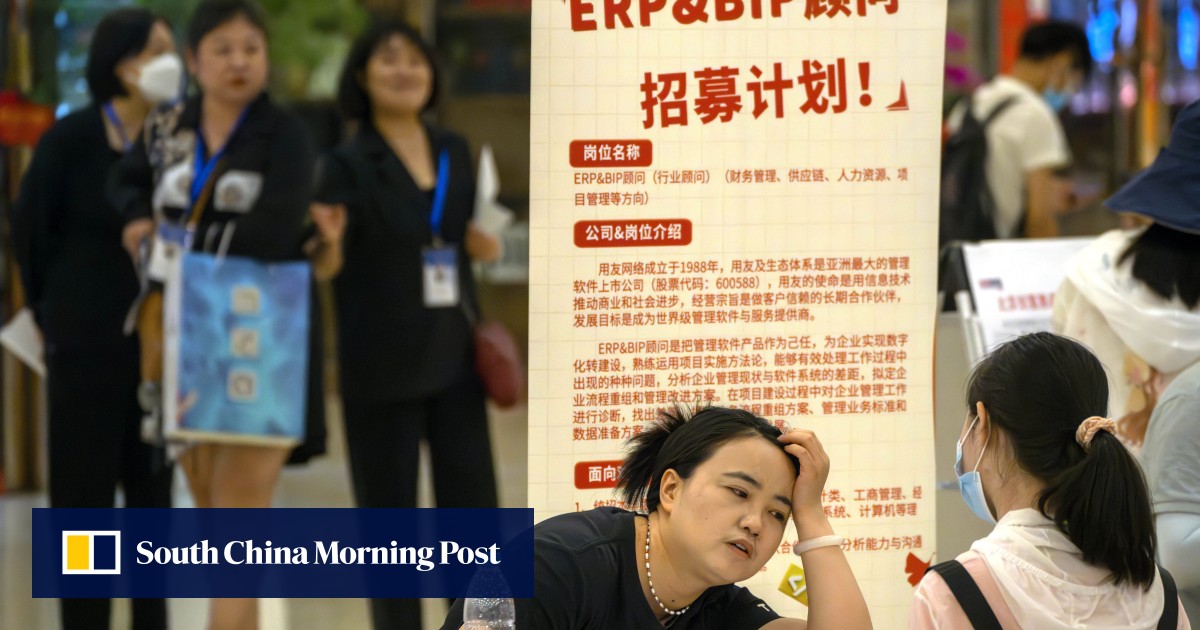Jobs
Social tensions in China reach boiling point as job, wage issues take their toll

Paired with residents in need of help, they carry out daily door-to-door visits and run errands for them if needed, with particular focus on “five special groups”: those with frustrations, failed investments, psychological imbalances, relationship problems or mental disorders.
“Everyone [working] has been quite tense,” Liu said. “[We’re] paying attention to families that are long-term unemployed or in debt, offering them one-on-one care to divert their depression and anger.”
The reaction of Chinese social media users to a recent series of violent attacks reflects widespread dissatisfaction over the country’s economic downturn and worsening employment prospects.
“Police told us that [the attacker] was unemployed and down on his luck, and that somebody in our group bumped into the man,” one of the four was quoted as saying by NBC News.
“And he decided to respond in the way he responded.”
On June 19, a man reportedly attacked three passengers with a knife at a subway station in Shanghai. The case is under investigation.
Around the same time, two separate clashes between customers and employees at Manner Coffee in Shanghai sparked heated discussion on the internet, with related topics on the microblogging platform Weibo garnering billions of views.
On posts about the incidents, tens of thousands of users left comments discussing whether high work intensity and low wages led to the fracas.
According to local media reports, an average barista at Manner has to make over 300 cups of coffee per day on a monthly salary of about 6,000 yuan (US$825).
The rise in these incidents can be blamed at least in part on rising unemployment, said Yu Hai, a sociology professor at Fudan University in Shanghai. “The middle class, in particular, is the group that has been hit most by unemployment and shrinking incomes.”
China’s private firms, which have struggled to return to even footing since the pandemic, employ more than 80 per cent of the urban workforce.
I remind my family daily not to argue with strangers
“Declining job and income expectations are causing conflicts between different social classes. The government needs to recognise that these incidents are not isolated but reflect broader social trends,” Yu said. “In particular, the middle class will decline during this wave of economic downturn, and their anxiety and despair will increase accordingly.”
This is caused by a “negative evolution of social mentality” in the domestic and international environment, the article said.
“Factors such as children’s education, income pressure, mortgage costs, and mental stress resistance have led to the gradual transformation of offline pressure to online, resulting in increased hostility and intensified confrontations in public opinion.”
Liu Fei, the community worker, said this fits with her own experience. “When the economy is in downturn, people become more aggressive, and conflicts between strangers increase. I remind my family daily not to argue with strangers.”
According to the People’s Bank of China’s Urban Depositor Survey Report – a survey of more than 20,000 households nationwide – for the past three years the income sentiment index, income confidence index and employment sentiment index have been on the decline, lingering at low levels.
In the first quarter of 2024, 13.2 per cent of residents said they believe their income will increase, 69.6 per cent said they thought their income will remain the same, and 17.3 per cent expected their income to drop compared to the previous quarter.
The income confidence index was 47.0 per cent, the PBOC said, with 10.5 per cent of residents agreeing with the statement “the situation is good, employment is easy”. Meanwhile, 43.0 per cent called the situation “average,” and 46.5 per cent agreed with the statement “the situation is severe, employment is difficult”.
In calling for “full, high-quality employment,” Xi explicitly addressed widespread complaints about illegal lay-offs by some companies and pointed to a mismatch between job supply and demand in some sectors, especially among young people.
“Employment is the most basic livelihood of the people. It is related to the healthy development of the economy and society, and the long-term stability of the country,” Xi was quoted as saying by the official Xinhua news agency.
“The core of the current government’s policies is still to [control risk], but the government should work with society to overcome difficulties,” Yu said. “Social governance and urban management policies must be tolerant, compassionate and empathetic.”


)






